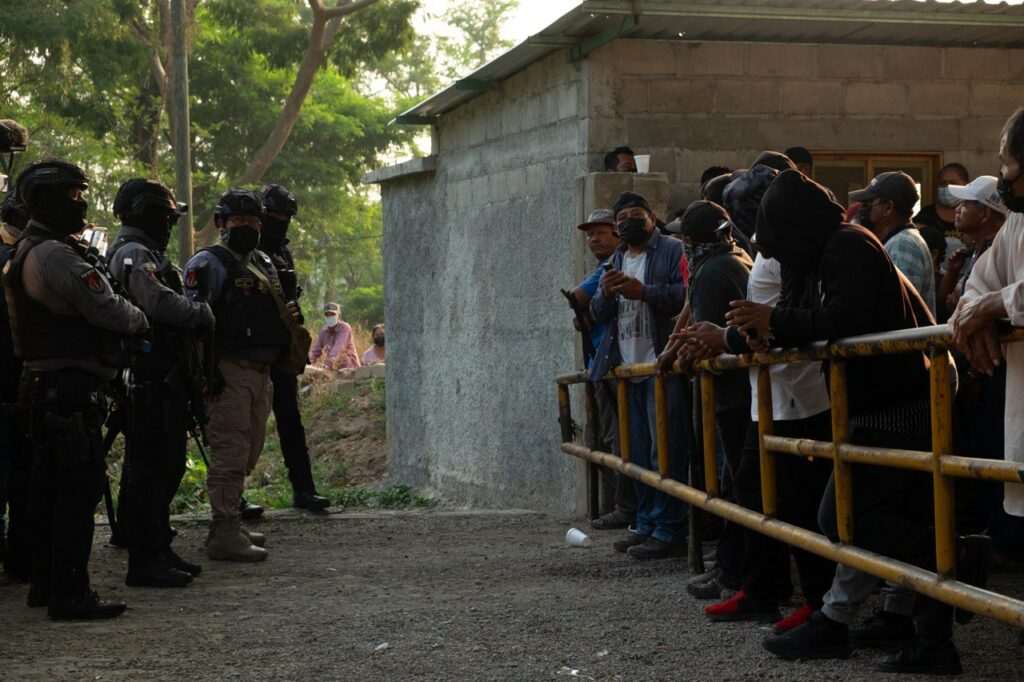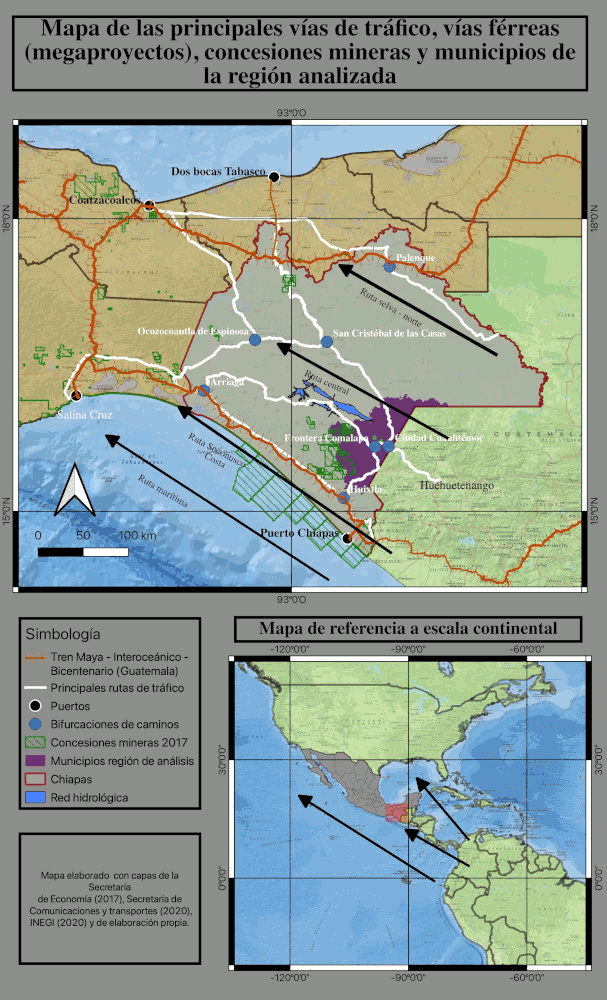
Assault on daily life, terror for the control of territory and grave human rights violations.
REPORT OF CIVIL SOCIETY ORGANIZATIONS IN CHIAPAS ON VIOLENCE IN THE BORDER REGION.
Since approximately 2021, the border of Chiapas with Guatemala has been plagued by an unacknowledged armed conflict based on the territorial dispute between organized crime structures for the control of goods, services, people, legal and illegal products, as well as the very lives of the local population. This area, known as the border region, includes the municipalities of La Trinitaria, Frontera Comalapa, Chicomuselo, Siltepec, Escuintla, Motozintla, Mazapa de Madero, El Porvenir, La Grandeza, Bejucal de Ocampo, Amatenango de la Frontera and Bella Vista.
Due to its geographic location and strategic natural resources, Chiapas is a key territory for the control and promotion of legal and illegal economies. It is worth noting that the region, whose population is largely indigenous, is historically abandoned by the state. The border zone, epicenter of the current violence crisis, is home to the indigenous population of the Mam people, the mestizo population, as well as Jacaltecas, Q’anjoba’les, Akatecas and Quichés communities, some of them descendants of the Guatemalan exile of the 1980s.
The turning point that reveals the dispute between criminal groups in the state is the events of July 7, 2021. On that day, Gilberto Rivera, “El Junior,” the son of the operator of one of the organized crime groups that controlled the state, was assassinated, and his murder was claimed by the opposing criminal group.
The year 2023 has had several important peaks of violence. The violence occurred in May, when organized crime groups clashed in the community of Nueva Independencia, also known as Lajerío, impacting neighboring communities, all in the municipality of Frontera Comalapa. This caused around 3,500 people to be forcibly displaced from their communities, putting their lives, safety and personal integrity at risk.
Throughout the year and to date, the civilian population has been taken hostage, used as a shield, forced to participate in mobilizations, blockades and confrontations in favor of one or the other of the sides in dispute. Basic supplies such as food, gasoline, gas, electricity and telephone companies have been cut off, keeping the population in fear and anxiety, incommunicado, with food shortages and even with the impossibility of moving around. In addition, the phenomenon of disappearances is of great concern. It is difficult to document in the border region due to the scarcity of reports, which stems both from the lack of confidence in the authorities and the fear to which the population is subjected. However, even official figures reveal a rise.
According to the documentation that serves as the basis for this report, criminal groups develop various strategies to gain control of the territory. Widespread and recurring confrontations, permanent surveillance, physical occupation of private plots of land that even turns people away from their own land, among others, were documented. Similarly, the groups focus on population control: through actions that seek to foster social acceptance, with strategies of persuasion, but also with violence, such as forced recruitment.
The “economics of conflict” that has been established in the zone includes the dispossession of the population, the increase in extortion, the closing of businesses, the sexual exploitation of girls and women, with significant economic, social and psychological impacts. In general, people living in the zone see their daily lives affected in almost all aspects, without it always being easy to identify the motives of the groups present.
At the institutional level, it appears that organized crime has inserted itself into health services, garbage collection, government administrative units, food supply, education at different levels, among others. The control of these institutions is ambivalent, however, and depending on the group and the state of the conflict in the area, it can go from co-optation and financing to cases where the institutions must remain closed or open despite the fact that there are clashes.

The consequences of terror, of the control of bodies, minds and territories are terrible for the population. Thousands of people have been forced to move, without it being possible to document precisely how many and with what destination. However, we can affirm that the combination of physical, economic, psychological and sexual violence has led to the forced internal displacement of at least 7,500 people in the region between June 2021 and November 2023. In some communities, there is talk of 15% of the total population being forcibly displaced. These forms of control and infiltration also weaken and fragment social and peasant organizations, destroying and manipulating the dynamics of decision-making and internal sanctions and, ultimately, eroding the very meaning of community life.
The practices of organized crime groups in the border region of Chiapas produce a widespread situation of serious human rights violations whose implications go against the most basic sense of humanitarian protection. Assessing these impacts may be problematic at first glance insofar as it is not state agents who are directly violating human rights. At the same time, there is no official recognition of the existence of an internal armed conflict (or Non-International Armed Conflict) in the area. However, there are armed groups with the capacity to generate serious impacts on the life, dignity and personal integrity of all inhabitants, who are not part of the conflict and whose protection is the responsibility of the State.
In the face of this situation, state intervention has been primarily one of negligence, acquiescence and, in some cases, collaboration. Faced with the generalized defenselessness derived from the territorial dispute between organized crime groups, the population has repeatedly demanded the urgent intervention of the Mexican Army and the National Guard. In contrast, it has been the inaction and connivance on the part of the elements of the state security forces that has led to demands from the civilian population for their withdrawal from certain places.
In fact, throughout the border region ravaged by armed conflict, organized crime interacts with government officials, forming criminal structures that intervene and aggravate tensions and conflict over territorial control. Such is the degree of insertion into government structures that in some municipal capitals it has been reported that “the entire city hall is part of criminal structures and at their service.”
Published in Pozol Colectivo on February 13th, 2024.
Original Report: https://grupotrabajofronterachiapas.org.mx/
Translated by Schools for Chiapas.
If you can, make a donation to support these displaced and threatened families!
*The fund supported by Caritas is bringing vital supplies to families who have had to flee the violence. If you don’t use PayPal, you can visit our Gift of Change to donate.
